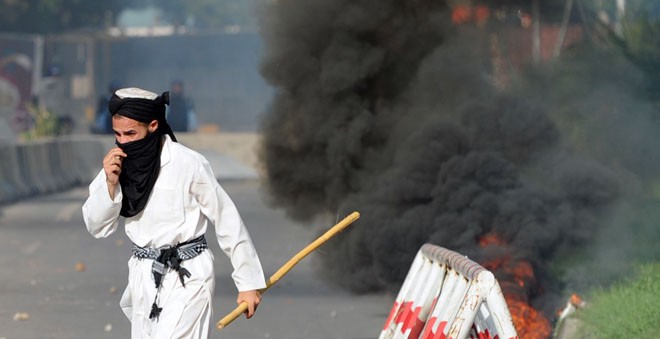

"Terrorism in the name of religion or target killing the way it has found ubiquity in Pakistan is virtually an anathema for any developing polity because it brings anarchy, fear and social degradation, which results in economic doom". This was the assertion of Rana Shafiq Perwaz, a resident of North London and an entrepreneur who deals in fibre optics. Despite being trained as an engineer, he has an incisive sense of the socio-political realities pertaining in Pakistan.
Many a time, he has thought of making some investment in Pakistan but two impediments have dissuaded him -- rampant violence and structural hazards at the state level. He found that the state apparatus in Pakistan impedes instead of facilitating any person who wants to contribute to the country of his/her origin. To him, the fascination with mega-projects like the metro bus or ring roads etc. is not in essence a bad thing but the development of human resources, by investing in health and education, is more important. Technically-trained manpower is a sine quo non for economic prosperity. Such human capital is in utter scarcity, he laments.
Like many others from his profession, he too had pinned many hopes on the present government but thinks nothing concrete has been done thus far. "It is all indecision that the current government of Mian Nawaz Sharif is beset with. With regard to policy, government seems to be all at sea." He strongly espouses a concerted effort on the part of the state to root out terrorism through a military operation. He thinks it is highly disconcerting that no anti-terrorism policy has yet been devised by the Muslim League (Nawaz) government.
A prolonged conversation with Perwaz left me contemplating about the lack of resolve to find solutions to the problems that glare in the eyes of Pakistani masses. I am left with no doubt that dialogue with the Taliban is highly unlikely. TTP leadership will never hold any talks on substantive issues, such as the nitty-gritty of the Shariah that they want promulgated in Pakistan, irrespective of the wide varieties of sectarian persuasions coexisting in our curious synchrony. That is not their forte; thus they will avoid coming to the dialogue table. Their unilateralism is their strength and they are very well aware of it.
Taliban are a different species vis-à-vis other exponents of Islamism, fighting with modernist tools against modernity. From the late eighteenth century onwards, numerous Islamic scholars have strived to embrace modernity with varying success. Even the very conservative of them, like the Egyptian scholar Muhammad Abduh, embraced modernity in his ideas as well as practice and tried to gel it with Muslim epistemic traditions.
The subcontinent has had such a reputed scholar and poet in Allama Iqbal who employed the tools of modernity in his formulations. It is a sordid fact, however, that no one can engage with the Taliban leadership at such a conceptual level. Their ideology is merely a rucksack of rituals which they seriously intend enforcing. The unbridgeable gap between the positions of the Taliban and the Pakistani state is worth emphasising here. Such mutually divergent points of view will not yield any result, except affording respite to the Taliban. One wonders why people are so enamoured with the idea of holding talks with such people, men who are far too crude for such a thing as dialogue. All-out military operation therefore remains the only option. Undoubtedly, it will be a daunting proposition but now is the time to take tough decisions.
Another tough decision has to be with regard to the madrassas which must be brought under the regulatory control of the state. The mushrooming growth of madrassas has continued unabated at great detriment to the state itself. The role of the educational institutions is to inculcate among the young the spirit of citizenship and loyalty to the state. Quite conversely, most of the madrassas have been doing exactly the opposite. A comprehensive system of reform is urgently needed so that they can be brought into the educational mainstream.
In this particular regard Allama Javaid al Ghamdi’s insight makes a lot of sense. He has proposed a distinct option of theology to be offered at secondary school level. Those boys or girls aspiring to be religious scholars may take that route in exactly the same way that specialised education is imparted to doctors and engineers etc. Some of the better known madrassas could therefore work as specialised institutions for training scholars. This is a surmountable task with political will and sagacity. Maulvis would have to be properly qualified from institutions recognised and endorsed by the state. This is what is in vogue in most of the Muslim countries.
Keeping control over mosques is yet another of the tough decisions we face, but one that the state has to take if it wants to survive. In future, before constructing any mosque, sanction from the state should have to be sought. The khutba or the speeches made from the pulpit, too, ought to be strictly monitored and any indiscretion from the khateeb must not be tolerated. Restraining the maulvis and khateebs from whipping up sectarianism will be the most crucial of all the measures that the state must undertake.
Once the state shows its resolve and demonstrates through action, people will start lending their support to such reformatory measures. If things are allowed to persist the way they are, nothing but doom and gloom awaits us.